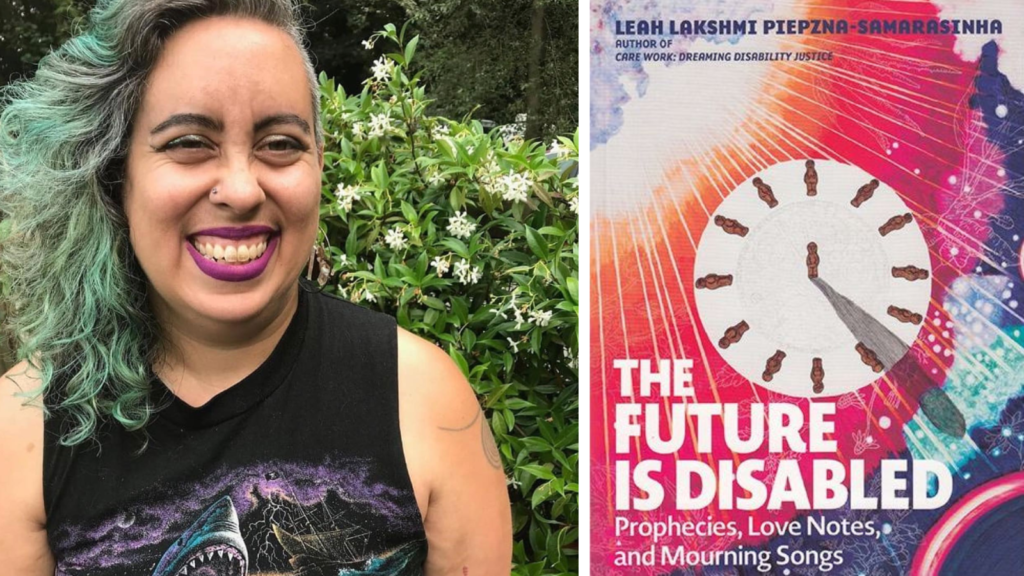Writer, disability-justice activist and performance artist Leah Lakshmi Piepzna-Samarasinha knows that it’s possible for society to become more equitable. They envision a future in which “people are free to be, regardless of their ability to fit into capitalist institutions.”
‘The Future Is Disabled’ book review from Ms. Magazine
I’m excited by the work of activists like Leah Lakshmi Piepzna-Samarasinha. And their latest book that “lays out a bare-bones agenda for what is needed to make the U.S. more socially just: affordable, available and accessible housing; healthcare and pharmacare; a universal basic income for all residents; free, high-quality public education programs; and the elimination of punitive policing and incarceration.” A resounding YES PLEASE to all of it!
Unfortunately, the systems in place are resistant to change. Instead, those in power propose much smaller, incremental tweaks. For example, recently the State Department announced the finalization of their Five-year Diversity, Equity, Inclusion, and Accessibility (DEIA) Strategic Plan. Don’t get me wrong, this more intersectional approach is a step in the right direction. But it will only protect federal employees. Only 20% of people with disabilities are employed, compared to 64% of non-disabled people, according to the U.S. Bureau of Labor Statistics. That’s a huge gap. Only 4% of DEI initiatives include disability and that’s just in organizations that even have a DEI initiative. Most companies don’t have their disabled employees or customers in mind. A perfect example came from the amazing Meryl Evans. Yesterday she posted about her experience with an Apple Watch, and more.
“People with disabilities can bring a lot more to your team than what you see on their resumes.
They have an uncanny ability to come up with innovative ideas and solutions. Feeling excluded has a way of driving people with disabilities.
For instance, I never wanted an Apple Watch. I hadn’t worn a watch in years. A friend convinced me to try it. It made my life as a deaf person easier!
How? It became an accessibility tool.
It buzzes when cooked food is ready. No more overcooked food! It buzzes when someone is at the door. No more packages sitting on the porch for stealing. No more leaving my sister stranded on my doorstep when she dropped by unexpectedly.
No one advertises these benefits. Apple never marketed it that way. If they had, they may have gotten more buyers and fans.
These are examples of how someone who is different from you can innovate and come up with creative solutions.
We don’t always click when we meet someone. This isn’t because of a bad interview. We tend to click with those most like us. You’ll gain more when hiring someone different from you.
The thought of creating a more accessible hiring process feels overwhelming. Just start. How can you get started?
– Ask every candidate what accessibility they require.
– Verify the online application process is accessible for keyboard-only navigation and works with screen readers.
These are starting points. Keep working on it and adding more pieces. Progress over perfection. Just start.”
Again, yes to all of these things! I’m neurodivergent and have an auditory processing disorder. I wear noise-canceling headphones a good portion of the day. The Apple Watch’s haptic feedback has made my life so much easier too. And I want that for others. There’s so much we could do, as a society, to improve the quality of life for our fellow humans. But the pace of change is moving too slowly. More people are being forced to survive with less…while profit margins are on the rise for those at the top. We could all be thriving instead.
